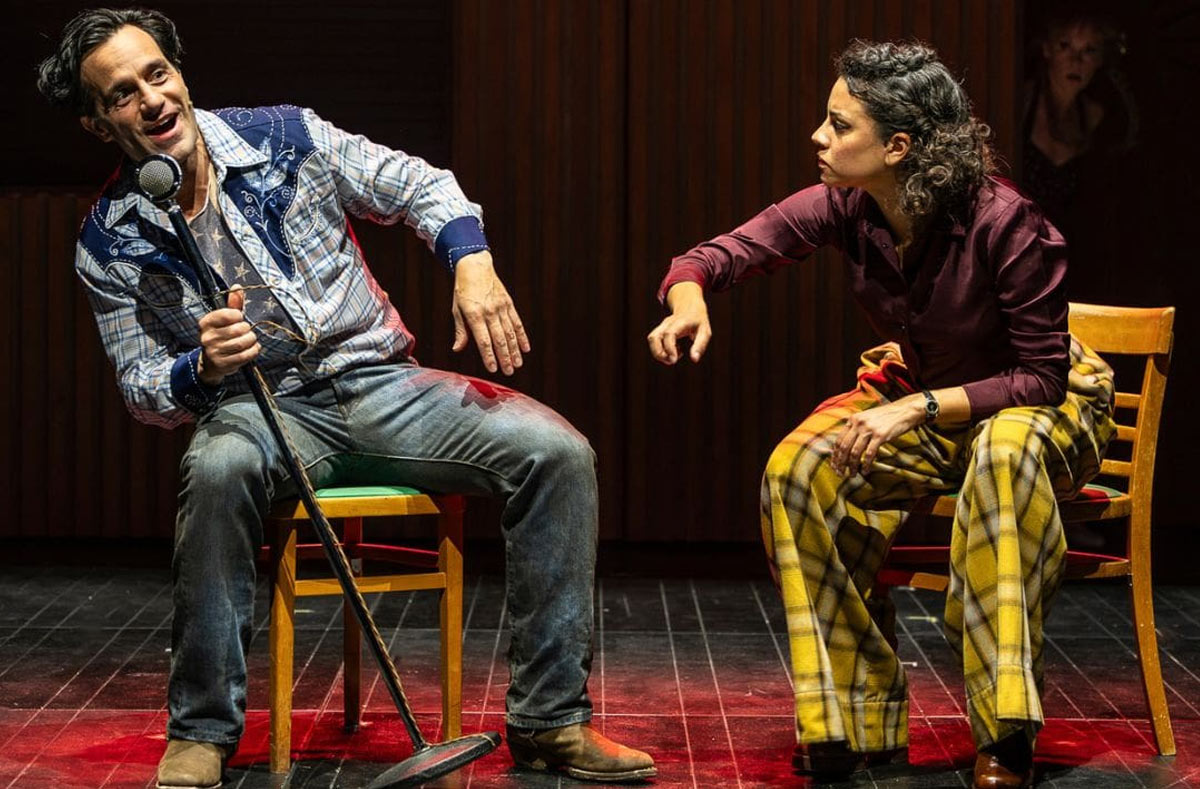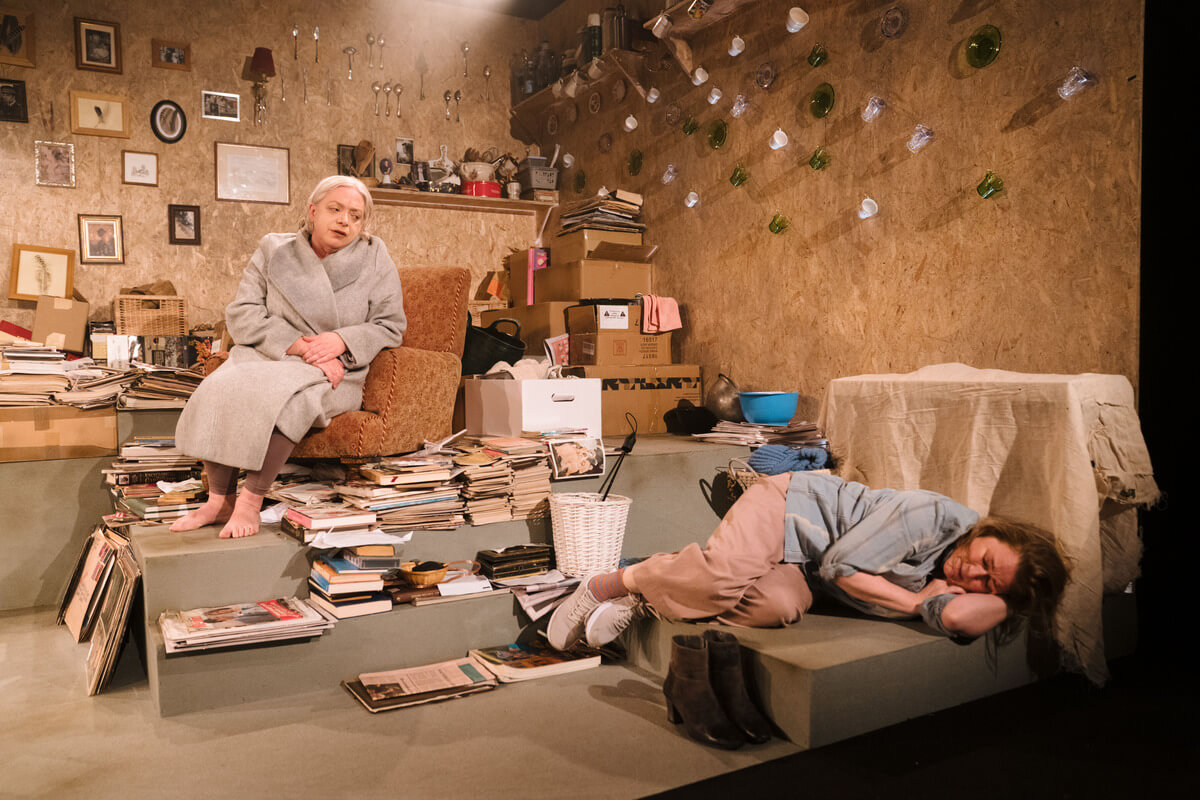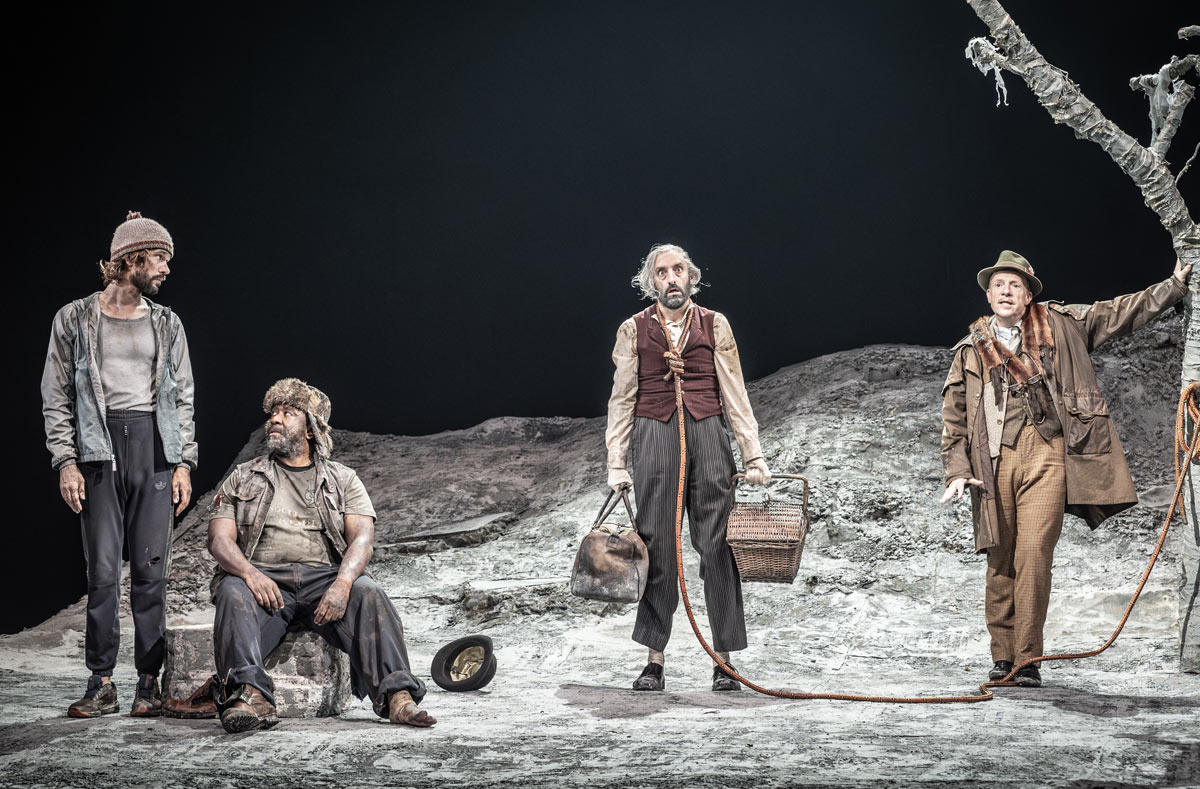Picked up and syndicated by the nation’s radio broadcaster, the pair’s success transports them first to Chicago and on to New York where with Marcia’s continued professional guidance, Lonesome (when he’s not singing) finds himself in front of TV cameras selling mattresses to middle America and saving marriages with his Billy Graham-like message of support for marital fidelity. Unfortunately as with most evangelicals (whether religious, political, or both) fidelity doesn’t necessarily apply to the advocate and despite a burgeoning romance with Marcia, Lonesome succumbs to the charms of a succession of female admirers as we learn that his own father abandoned him when he was a kid and his mother entertained her own succession of uncles.
Before long Lonesome’s rose-tinted neo-Republican view of America and his binary understanding of society and racial infiltration, causes him to become the pin-up boy for a right wing faction running for the Presidency. Still further, his chemically enhanced delusions encourage him to believe that he has the power to make anyone do anything (including nominate him as VP running mate). The crash when it comes, is fast and absolute.
Based on Budd Schulberg’s screenplay and film of the same name, A FACE IN THE CROWD here with music and lyrics by Elvis Costello and a book by Sarah Ruhl, is Kwame Kwei-Armah’s swan song as Artistic Director at the Young Vic - the post he has held since 2018. It’s just a pity that despite the considerable reputations, good intentions and undoubted talents of those involved, the vehicle lacks coherency.
By accommodating too many songs (some distinctly and instantly forgettable) the show suffers from a lack of narrative punch and direction. Dialogue scenes could have lent greater weight — particularly in the more politicised second half, but the opportunity is lost and we’re left with a near love story, near rags-to-riches yarn and a half-baked theatrical essay on the evils of Trumpian popularist ignorance. Of course there is nothing to say that the show couldn’t be a combination of all three, but for some reason it just doesn’t commit and as a consequence, the end result fails to gel or wholly convince.
The ensemble cast are universally talented and execute the material as well as possible given the largely two-dimensional characterisations which they have to work with. Special mention has to go to Ramin Karimloo as Lonesome Rhodes who delivers his lead male in spades. Anoushka Lucas as Marcia Jeffries who brings a Helen Reddy/early Kiki Dee tonal quality to her ballads, newcomer Emily Florence who as Betty Lou is afforded ample opportunities to steal scenes but allows her professionalism to shine without undue ostentation, and Olly Dobson whose confidently intellectual approach to Mel Miller shone in each of his scenes, showing the skills of an accomplished stage actor as well as his renowned lyric tenor.

 A Face In The Crowd at The Young Vic. Photography by Virginie Khateeb.
A Face In The Crowd at The Young Vic. Photography by Virginie Khateeb.
